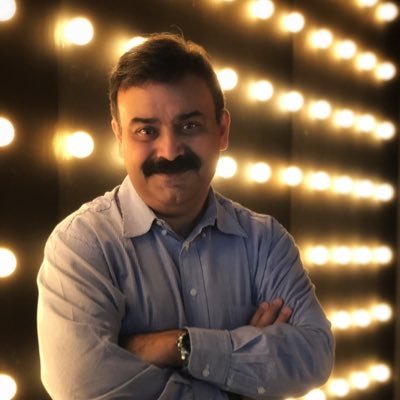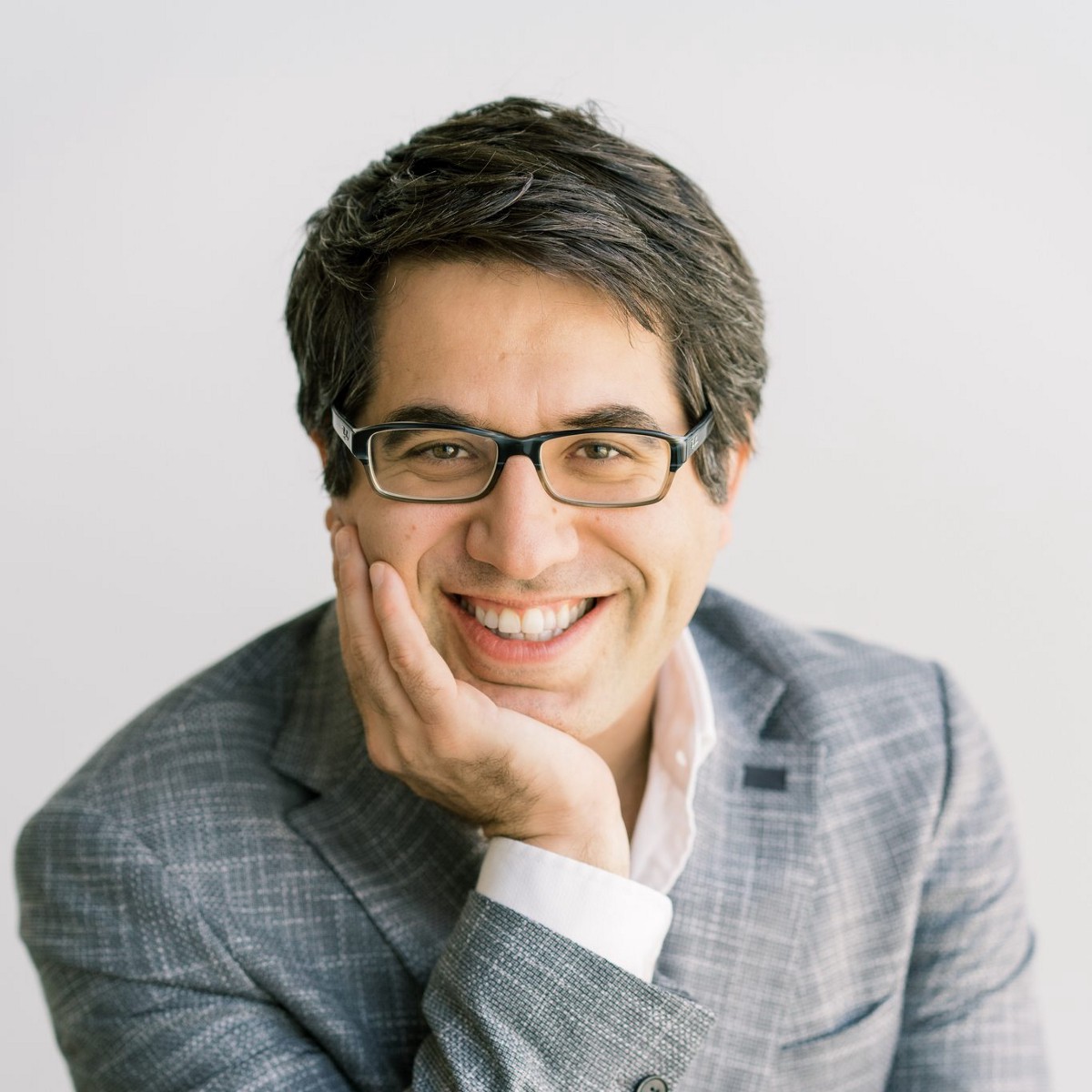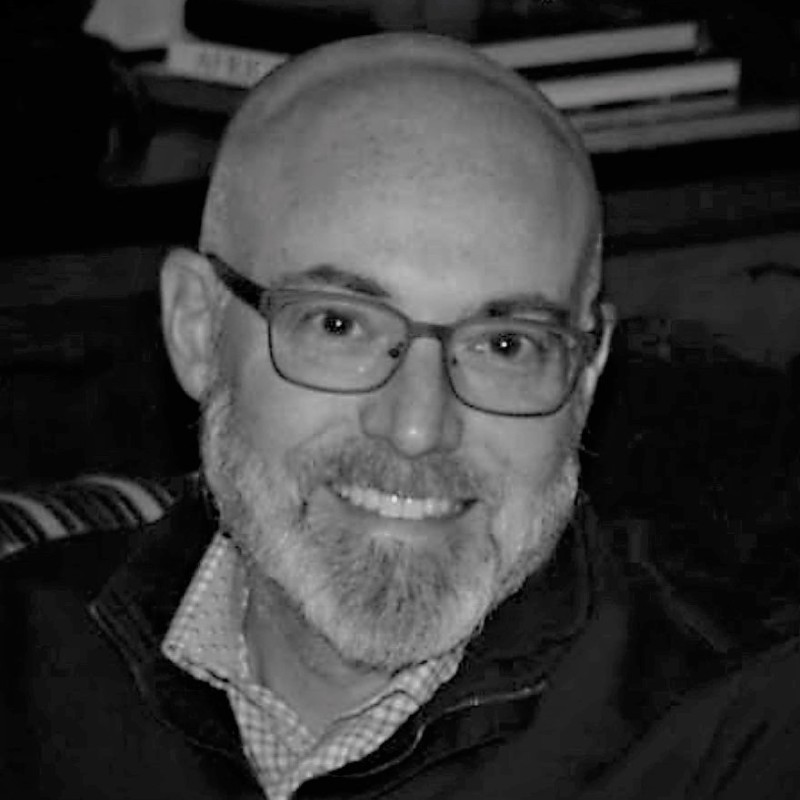Social media demands that we not only have a great job, but one that we love all the time. Reaching that level of career bliss seems unthinkable for most of us. Every job has its ups and downs, but being happy at work shouldn’t be so far out of reach.
Abhijit Bhaduri helps us examine what it takes to really be happy with our work. Most of it focuses on the values you are using to evaluate your happiness. Is it all about the money? Flexibility? Doing work you enjoy? Most of us use multiple values to evaluate the job and are always lacking on one front. Ranking those values and deciding which one we care about the most helps us be more comfortable in calling ourselves happy.
Each job also has a certain amount of repetition that will drive certain people crazy. If you find a job where you actually enjoy the monotonous parts of it, you’ve found a winner.
What we learned from this episode
-When you have a worldview of scarcity, success is a zero-sum game
-Your work happiness is directly linked to your values and the metrics you use to weigh those values.
-How Abhijit realized he didn’t need to quit his job to pursue his hobbies.
-Every job has repetitive work you must do every day. Find the job that you can enjoy the repetitive work in. Repetition doesn’t need to make you unhappy, it can lead to perfection.
What you can do right now
-Choose the values that you will use to judge your happiness in your career, and rank them.
-Find activities that bring good stress in your life. Don’t stress about stuff you can’t change.
Key quotes
“If worrying about something is going to change the outcome, then yeah, it’s worth worrying because you’re changing the outcome in your favor. But if my worrying or not worrying is not going to change the outcome, then it doesn’t quite matter.”
Today, our guest is Abhijit Bhaduri. He’s a keynote speaker, author, and what Forbes calls one of the most interesting globalist in the world. And this is Work Minus Unhappy Careers. Hi, Abhijit. How are you?
Hey, good to be here.
And it’s great to have you on the show. You’re a celebrated speaker, and we’re excited to interact with you more. Why don’t you tell our audience a little bit about who you are and what you do?
Well, I have now been a talent management strategist for organizations, and I help them create talent strategies for the future. A lot of it is based on the work that I did for my book called “The Digital Tsunami” which talks about how the world of work and business is getting reshaped by the digital technology, and a whole lot of other social economic shifts. So, I help people to really focus on four aspects. One is to help innovate on the business model, to help innovate on the talent model as a byproduct of that, to look at what the C-suite needs to do, which is really the leadership piece, and the fourth element is how do you build a culture where this change gets sustained. So, that’s really in short what I do as a consultant besides my writing.
And you have a second book as well. It’s about how to build the best team.
That was the first one which I did, which was nonfiction, which was called “Don’t Hire the Best.” It really talks about most people focus on competencies, and things which can be taught and learned, whereas a more stable element is personality, and not enough people actually leverage personality to build teams. And that, I think, is a far more stable element which we can work with. So, that was really the book that I wrote first.
Let’s jump into our topic of unhappy careers. Now, you’re someone who’s been in talent management for a long time. You’re also coming from an Indian culture, which in a lot of ways, you’re dealing with a lot of traditions, a lot of ideas of parents telling kids this is what your career is going to be. You’re not going to like it. That’s fine. This is what you got to do anyway. So, what happened? When did this idea of happiness in careers become something that became a big thing that people could pursue?
So, I think a lot of it has to do with the fact that when you begin to have choices in your career, I think that’s when you begin to shift your focus from being successful, which is when you have a lot of competition, when it’s a worldview of scarcity, you really focus on success. So, I need to do better than the others. So, it’s a zero-sum game. I get it so somebody else doesn’t get it or the other way around. Whereas happiness is a mindset of abundance where you say that I can be happy and I don’t need to be dependent on factors that others have decided for me, which could mean making choices in one’s career, making your choices to change, drop something, change tracks, and pursue life on your own terms.
So, I think that shift has started happening a lot more as the world has gotten more interconnected and people begin to look beyond traditional roles, the standard five or seven roles that people said were good career choices which could, in the Indian context, being either a doctor or an engineer or maybe a chartered accountant or a lawyer. And these were really considered to be the big ticket items where if you wanted to be successful defined as making more money, having more fame and power, then that’s what you did. But I think life has moved away from that. And you see a lot more people taking fairly unconventional career choices and pursuing happiness instead. There are tons of examples of people I’ve met who’ve dropped what they were credentialed in. So, whether it could be being a doctor, and then turning out to be a rock musician, for example. There are lots of examples like that of somebody who ended up being a successful HR consultant and dropped it to become a stand-up comedian and says that he makes way more money as a stand up comedian than he ever did as an HR consultant. So, there are lots of these examples that one can talk about.
Let’s talk about the sequencing because this is an important part. When we talk about success and happiness that I think what’s drilled into us is, go out, be successful, and then you can use that success to be happy, whether that means you finally have enough money, you can retire early, you have all these other options around you. Is that necessary that we have to go success first and then find happiness afterwards?
No, it doesn’t have to be. But I also think that there is another factor that we need to keep in mind, which is that thanks to all the changes that are happening in the world around us, people are living much longer, especially thanks to access to medication and different diseases getting conquered, people are living much longer, which means it’s not just about pursuing a job in order to make money. But what do you do to find meaning? So, when you explore that element of it beyond just earning to earn and earning a living, you actually think of doing work in the area of happiness. So, it doesn’t have to be in sequence. You could decide to make choices, which are much better thought through. And one of the ways to do it is to actually become more self aware. So, when you become aware of your strengths and weaknesses, you actually end up making better choices. And it could be something as trivial as, let’s say you want to pursue a career in sports, choosing the sport which leverages your strengths and weaknesses actually together is a very powerful combination. So, you’ll see lots of examples of sports people who are extremely successful in one sport, and took up another sport after they retired or wanted to do something else and never being just as successful. But possibly, they’re happy doing what they’re doing now. So, there are many examples of this. Self awareness is, really, I think, the defining factor.
Well, let’s go into self awareness a little bit more, specifically with even this concept of happy versus unhappy. That’s a very broad thing. You can define that in lots of different ways. Some people may say, hey, I’m happy because I’m making money. And that makes me happy whether or not I like my job or not. But how can different people define the terms happy and unhappy in different ways? And why is that important for self awareness?
So, I think you raise a fantastic point. I think happiness and unhappiness depends on the motivation, values, and preferences that we have. And the more the job allows me to address some of these motivators and values, the better chances of my being happy. Let me give you an example. Let’s say I’m driven by individual recognition more than, let’s say, team recognition if I work in an environment where my individual contribution is irrelevant and the team success or failure is what gets talked about all the time, I may be part of a successful organization and a successful team, but I still have that lingering belief that, well, my own worth is not recognized enough. Whereas if, let’s say, you’re helping others is a very important element of my values and preferences then finding a role where I get a chance to maybe teach others, maybe make a difference to them directly, and my manager actually being able to point that out to me that what you’re doing is making a big deal of a difference to somebody else can be a very, very powerful motivator. So, I could do any job, regardless of the money that it pays me, and I could still be tremendously happy and satisfied and get a buzz out of going to work every day. So, it depends on what, really, I really care about, the values that I have, and to what extent it gets addressed.
So, tell us about you personally. You’re in a stage in your career where you can pretty much choose which one to do. So, how do you define happiness? And how did that lead you to what you’re doing now?
So, I think for me, one of the ways of building happiness was even before I started doing stuff on my own when I was working as the Chief Learning Officer for Wipro and prior to that as a head of HR for Microsoft in India, I actually wanted to understand how do I bring in the stuff that I enjoy doing on weekends, which was about my writing, my blogging, my drawing, all of that, how do I bring that into the work that I do. And I thought initially it was that I pursue it in parallel, which is I wrote and published my books, even as I was working somewhere. Then I found that even that wasn’t a great way to do it. But a better idea, perhaps, was that I bring in this element of my hobbies and interests into the work that I do and blend it into doing it uniquely. So, for me, the big a-ha moment was that I started to see it my role as the Chief Learning Officer for Wipro, it’s a large company with almost 175,000 employees spread across 50 odd countries, spanning different generations. So, I said how do I become relevant in a much larger group of people than the ones I engage with in either virtually or in the classroom or webinar or whatever.
So, I started by saying that I enjoy reading and I enjoy drawing so I would actually start creating a short summary of some key takeaways of stuff that I’ve read or learned about, and I would send that out in the form of an email earlier. And that actually started generating a tremendous response back, not right away. But after three or four months of doing it consistently, once a week, people started responding back saying this is the question that they had, or they enjoyed it, or sometimes simply people saying that they had other ideas and suggestions for me. So, it built a two-way conversation with a very, very large group of people. I initially started responding back to every one of them individually. And then I realized that I could either do my job or to respond to all the people. So, there was a huge feedback from the people, which was something that kept me going. When I left Wipro, I took that same idea and started doing that on Linkedin, which was a public forum. And the impact was amazing because when I left Wipro, I had about 30,000 followers on Linkedin. Today, I have close to 845,000 followers on Linkedin. So, it’s a quantum shift in two and a half, three years. So, I think the work that I started to do started to resonate with a much larger number of people. And it was because I leveraged my writing, by drawing, and my reading, all of it, put it together, I think I get a chance to meet very interesting people so I write about those. And hopefully, it helps people in what they’re doing.
And one thing I really like about you is that you do incorporate that drawing aspect, your sketches that are there, which is really cool because most people who try to be thought leaders, they’re authors, they’re speakers that go out there, but you put a lot of visual elements to it that are native to what you’re doing, which is really cool. I like that a lot.
Thank you. Thank you for saying that.
Let’s talk about stress a little bit because often we feel like if you’re stressed out in your job then you’re unhappy. In your experience, what level of stress is acceptable? Because every job is going to come with a certain amount of stress. So, how do you know whenever it’s gone above a point and you need to get out or it’s just a healthy stress that’s there?
So, I think you used the right term there. There is a certain amount of stress which is healthy because if you ever tried walking on a piece of glass or a surface which is super smooth, you actually cannot walk. So, you cannot make progress if there’s no friction because that’s something that spurs us to move on. So, in some sense, I would like you to think of the visual of a guitar. If you think of the strings, if they’re extremely loose, so there is no tension, there is no stress, then in which case, you actually cannot play the guitar at all. But if you have an optimal level of tuning, you can actually create music out of that. So, there’s a right amount of stress, and it varies depending on our ability to handle it, but usually, when we think that the factors that are around us are within our control, you feel less stressed about it. So, I think one of the good ways to really think about stress is to really focus on things that I can change. I mean, if worrying about something is going to change the outcome, then yeah, it’s worth worrying because you’re changing the outcome in your favor. But if my worrying or not worrying is not going to change the outcome, then it doesn’t quite matter. Then I might as well not worry about it and use the time more productively to either craft a solution, or if nothing can be done, it’s completely out of my control, then I just focus on something else.
So, let me give you an example of how it played out. So, I live in a city where the traffic jams are quite notorious. So, this is something I have no control over. And of course, one would leave early and plan it out better, and you look at your Google Map and it tells you that it’s going to be at this kind of time. But even that it’s not exact. It gives you an approximation and then it does add a little bit here and there. So, the question was if I redefined the problem and said, what do I do where I can make better use of my time? So, one of the things I started to do was start listening to podcasts. So, as a result of that, it was tremendously enjoyable. I started looking forward to the time that I could be in that because many of these podcasts really, really made a difference to what I knew. I met some incredible people. And your podcasts were a tremendous way for me to learn more and learn about the worldview of many different people who I could never meet in real life. And it just opened up a huge world for me and it turned something negative into something positive, something that would instead of giving me a cause to stress about, it was something I looked forward to.
You said you were the Chief Learning Officer at Wipro. What importance does learning and curiosity play when it comes to being happy in your career and always exploring and trying to find new things?
I think when you think about your career choice, when people are making career choices, even when they are either shifting organizations are just doing something completely different, doing a side hustle, could be multiple ways of looking at it. But I think when you pursue something where the field triggers your curiosity, you want to learn more, and you want to learn more through the act of doing it besides, of course, reading about it and doing all that. They’re wonderful ways of learning. But where you enjoy doing that day in and day out, that’s probably the hint that it could be potentially a great career choice for you. So, I wanted to ask a music director about how he or she defines finding something which is meaningful and exciting and working without being unhappy. So, this person says you need to find a job where you can do something day in and day out, you can do repetitive work, which does not make you unhappy, which I thought was a very wonderful insight. Everybody’s work, you basically go around and do the same kind of things every day if you’re pursuing a career. A lawyer needs to do some kind of work every day and so does a doctor or a music composer. So, he says that I enjoy playing the same thing and perfecting it just a bit more, one stanza better, one note better, one note. And if you find the ability to do that, that’s how you achieve perfection, because according to him, you can’t achieve perfection. And if you don’t achieve perfection, you’ll never get the kind of recognition that you aspire to do and obviously a lot of happiness and success.
Which brings us to the first question that it doesn’t need to be mutually exclusive. You can have happiness and success and recognition and all these things when you do something that you can enjoy doing every single day. So, there’s repetition, but you enjoy improving through that repetition. So, there are two elements to it. So, I think the moment you start to do that, you’re blending in three elements, art, business, and craft. So, artists, just the way that you do something, which is uniquely you, but in order to do that, you need to know the craft very well so the technicalities of doing that well. But there is a third element of business that you know how to monetize these two things. And when you see the ABCs come together, I think that’s the recipe for a great career.
And I think it’s also important to recognize that there’s going to be things that you like a lot and maybe you’re good at, but you can’t figure out how to monetize. And I think for most people, it’s important to say that’s okay. You can have hobbies, you can have the side hustles that maybe aren’t so lucrative or they don’t even pay you anything. But you can still enjoy those and keep your career as well, as long as your career is not sucking the life out of you.
And also, when I started writing and drawing, I’ve been doing it for many, many years now. But when I started blogging, and writing, and all that, at that point of time, I was just doing it as a side project to just improve my skills in writing. And one byproduct of that was I ended up writing a bunch of books that did reasonably well. And then I started getting invitations to write columns for newspapers and magazines. And so, you start to monetize something maybe at a later point in time but you cross a certain level of certain number of followers. So, I’m not here to talk about monetization in terms of time. But when you cross a certain amount of skill threshold, you do get to monetize stuff. So, I get my drawings to be monetized. So, there are drawings that I do for people which I get paid for, and I write, which I get paid for. So, when I started doing it, it wasn’t that way. I was just doing it because I wanted to get better at it. So, I wrote more and I drew more. And then I think it comes together at some point in time.
Well, Abhijit, why don’t you close us out with an idea about if you’re leading a team, and you see people on your team, what are some warning signs to look out for to say maybe this person is reaching a burnout stage, maybe they need to do something else. How can you have that empathy as a team leader?
So, I personally think that when people do have on a regular day, I mean, they are able to do their work, have a little bit of time to improve their skills and to socialize, these are two different needs, wherever a role doesn’t leave time for one of these two, then I think people start to burn out because when you engage with others, you get new ideas, and that rejuvenate you, and two, when you begin to do things which you really enjoy and you also have time to keep your family commitments and you are able to manage your own hobbies and interests. So, a little bit of me time, a little bit of they time, when you take that combination, inside the office as well as outside, I think people are happy. So, I would look out for signs where somebody dreads coming into work on a Monday morning. Somebody comes in and says, “Oh, my God. It’s Monday.” I think it’s a warning sign. And generally people feeling disengaged shows up in the fact that they have no curiosity to learn new things. They’re simply getting it out of the way and just doing the task. And in every single profession, when we meet people, we can make out the people who really enjoy what they do and those who are doing it because it has to pay the bills. So, I think when you find people who don’t go above and beyond what they are doing, they’re not experimenting, they’re not trying out new things, then it’s a sign that they’re either at a negative level, or at best, at a zero. So, both are, to me, warning signs.
I like that a lot. Looking for are they going above and beyond? Are they doing extra things? Are they experimenting with new things? That’s great. I have a guy on my team that does a lot of writing and I know he’s a really good writer. I know he likes his job. But I also know that he loves traveling. And so, if I feel like he’s stuck in a grind and not really putting out his best work, one thing I’ll just suggest I think maybe it’s time for you to go on a trip for a while, take a week and take off and then come back, be a little more rejuvenated. So, it’s good not only to have self awareness, but also to have your team awareness to understand what triggers them as well.
Oh, that’s such a lovely example. Yes, absolutely. Being sensitive to what, sometimes, the other person may or may not be aware of. Just telling the person, hey, why don’t you do this, can be a very powerful way to trigger engagement.
Well, Abhijit, this has been a great show. I’ve loved all the insights you’ve shared with us. Tell people where they can go to stay in touch with your work.
So, if you want to drop me an email with a question, or just want to say hi, my email is [email protected] is an email that I access all the time. Or you can join me on Linkedin, or Twitter, or Instagram, by just doing a combination of my first and last name, Abhijit Bhaduri, it will take you to all the three places. I have a website, abhijitbhaduri.com. So, if you look for my name, it’ll bring you to where I am.
Yeah, pretty easy guy to find. That’s great. Well, thanks so much for being on the show. We appreciate your insights and we look forward to interacting with you more.
Thank you so very much for having me here. I’ve really enjoyed the questions, especially the distinction between happiness and success. I think it was good for me to talk about it. Thank you very much for having me.
Abhijit Bhaduri is a coach to CXOs and advisor to organizations on issues of leadership. He is the former Chief Learning Officer of Wipro. He has led HR teams at Microsoft, PepsiCo, Colgate & Tata Steel. He is on the Advisory Board of the prestigious CLO program by the Univ of Pennsylvania. He is on the Governing Council of MICA, Ahmedabad. A popular keynote speaker, he has spoken at TEDx, INK, NASSCOM and at several top B Schools in India and abroad. He can be reached at [email protected].












